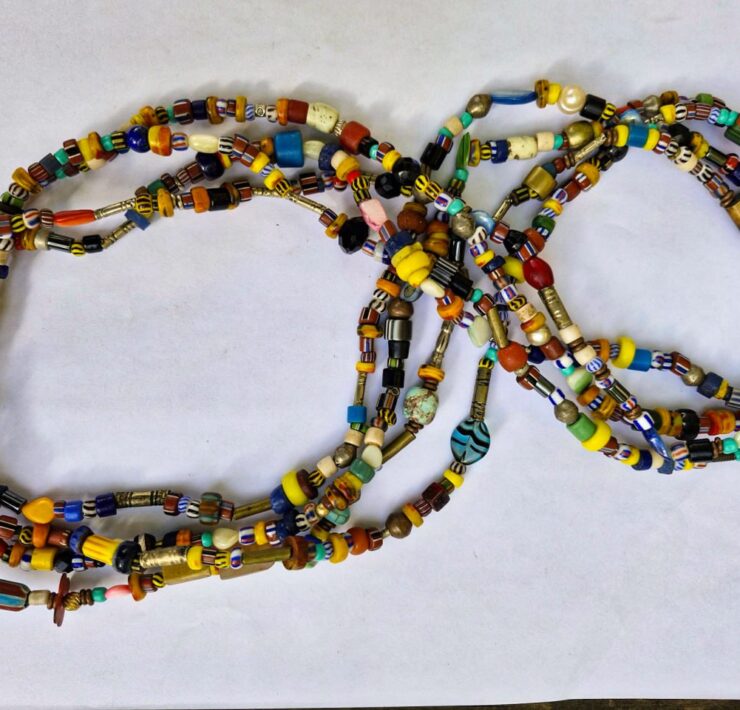Mental Health, Holistic Wellness and the Importance of Self-care

David M. Jones is a counselor and lecturer at Africa…
“Today, because of some work being done on the veranda, I find myself seated at our small desk in our would-be dining room. On my left, I can look out over the garden past the large and majestic Yellow Fever tree, and beyond the fence line to see two Maasai and their small herd of cattle. To my right (through the open front door), just past a dozing Rocky the dog, is another garden view with a bright blooming orange Bird of Paradise, putting a punctuation mark on the beauty of God’s art work.
Although I am so very blessed, grateful, and privileged to be sitting in such a place as this along with my lovely wife, I find myself a bit overwhelmed, stressed, and stuck; just low, if I am to be honest. At times, it’s as if I am journeying through a dark jungle that requires such a supreme effort to wield the panga, cutting vines and branches which seem to be purposely impeding my progress, just to make little headway to a destination I am unsure of.
Even now, I realize this is a spirit/cloud of depression attempting to create this paralyzing fog around the core of my being. Now, in this moment and the ones to come, I come against it in the name of Jesus, the name that there is no other name above. In reality, I know in my heart and mind that God’s ever-present light and all-encompassing grace, love, and peace shines brightly enough to permeate my spiritual, mental and physical abode. But I also realize that it’s up to me to intentionally increase my capacity to accept and act on these truths. Today, “The joy of the Lord is my strength” and I will “walk and not be weary” because His “rod and staff comfort” and guide me, and “nothing can separate me from His love!” This is my battle cry.”
The above is an excerpt from a personal email I wrote and sent to my parents not too long ago. As evidenced by what I hear from my clients, this is quite a common experience for many individuals, especially as we are adjusting to this “new normal” lifestyle due to the C19 pandemic. Yes, not only am I a counselor/therapist who treats people for various life issues, often involving emotional and mental health, but I also experience some challenges of my own.
As I also lecture on subjects in the area of Counseling Psychology, I often remind my students, that as humans, we are “fearfully and wonderfully made” (Psalm 139). But we are human and with that comes the undeniable fact that no matter who we are, or where we come from, life will be challenging. Author M. Scott Peck, in his book, “The Road Less Travelled,” put it this way: “Life is difficult. This is a great truth, one of the greatest truths. It is a great truth because once we truly see this truth, we transcend it.”
In order for us to successfully navigate through life, managing and overcoming its challenges, we need not just a healthy brain, but a healthy mind, body and spirit. We are, after all, holistic creations. Another famous author, C.S. Lewis simply wrote: “You don’t have a soul. You are a soul. You have a body.” Mental health, I believe, is achieved, balanced and maintained by nurturing these three major components that make us human.
So, how is mental health actually achieved and maintained? Intentionality! Intentional decisions and behavior are how change, balance, and ongoing enhancement of our potential is achieved. It does not just magically happen. Even faith, belief, and hope result from a decision that we intentionally make. Of course, there are some deep-seated issues, often hereditary; a result of past traumas or even ongoing abuses. However, no matter where we are on this journey, we can start on the road to better mental health through nurturing self-care.
MIND
Did you know that we can control our thoughts? This is not only scientific truth and a proven form of mental health treatment called Cognitive Behavioral Therapy (CBT), but it’s also scriptural. One of the New Testament writers, Paul, speaks of the possibility of “renewing our minds” (Rom 12:2) and encourages us to think positively – “think on these things” (Philippians 4:8). Instead of allowing yourself to fall into a low mood by ruminating on some negative and hurtful memories or worrying about the future, STOP/CATCH the thought; identify it as unhelpful. Then CHALLENGE/OBSERVE the thought – because many of our negative thoughts are just not true or accurate. Is the thought serving your wellbeing? Finally, SHIFT/CHANGE the thought to something positive and true or one of gratitude. This exercise takes practice, but you can do it. Be intentional.
BODY
As our mental health is related to our physical health it’s imperative that we nurture our bodies by engaging in some daily exercise, even if it’s just a short walk or some easy stretching. Treat yourself to some direct sunlight; it greatly assists in our bodies production of vitamin D, which has many benefits, including boosting our immune system and fighting depression. Stay hydrated with plenty of water and eat a healthy diet of mostly fruit and vegetables. Be intentional.
SPIRIT
Nurture your spiritual life and belief system. This is also scriptural. As Christ-followers it’s an important part of our mental health to be reading and meditating on God’s Word, praying, having a conversation with God (which BTW, also includes listening), and finally engaging in corporate worship with other believers. In times of a low negative mood or disruptive anxiety, take some deep breaths and begin to express gratitude, either by journaling or in prayer. Begin with just five people or things that you are sincerely thankful for. This is an invaluable exercise, no matter your circumstances or belief system. Once you begin, I’m sure that you can find more than five. Be intentional.
Obviously, one small article does not come close to containing all of the questions and answers regarding mental health, but perhaps it can be a small starting point to achieving a more balanced and fulfilling life. If there is one nugget I want you to take away, it’s this…treat yourself like someone you deeply care about and love in all that you do.
If you are experiencing deep emotional challenges or destructive behaviors (addictions), seek professional help. It should make sense that if we were to see a loved one ailing from a physical sickness that was causing pain and a disturbance to their lives, we would likely strongly encourage that loved one to visit a doctor or hospital. So if you are treating yourself like someone you value, please, reach out for help.
David M. Jones is a counselor and lecturer at Africa Nazarene University, Nairobi, Kenya.
What's Your Reaction?
David M. Jones is a counselor and lecturer at Africa Nazarene University, Nairobi, Kenya.
















